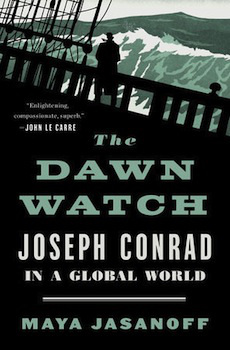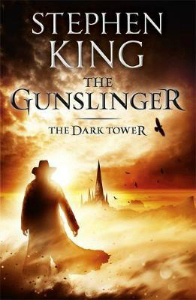
‘So the great need of our time being the saving of time, any soul that can give us very quick, irrefutable and consummate pictures confers a great boon on humanity’, Ford Madox Ford wrote. ‘Joseph Conrad gave you Malaysia, South American republics, the Secret Service, the pre-Soviet efforts of Russian revolutionaries, the Congo, the Sea — and above all the English public school frame of mind.’[1]
Ah yes, that frame of mind. Conrad was a little less than six months dead when this essay appeared but a decade earlier, in the first year of the Great War, Ford had written of how he was ‘in a sense an unfortunate man—unfortunate in the sense that all men of forty and less, the world over, are unfortunate. For I came into, and took very seriously, English public-school life at a time when the English public-school spirit—in many ways the finest product of a civilisation—was already on the wane. I took its public traditions with extraordinary seriousness—the traditions of responsibilities, duties, privileges, and no rights.’[2] This was in a work of propaganda, written for his friend, the Liberal politician Charles Masterman, then in charge of the War Propaganda Bureau at Wellington House, its team of writers primarily concerned to oppose German propaganda in the United States. Ford had in fact attended a boarding-school in Folkestone, then, as a day-boy, University College School in Gower Street—but that tradition, that frame of mind, yes, he was probably familiar enough with it, one way or another.

(Benedict Cumberbatch as Christopher Tietjens in the BBC/HBO series of Parade’s End)
Christopher Tietjens, in his rather unhinged exchange with General Campion, states that ‘it is not a good thing to belong to the seventeenth or eighteenth centuries in the twentieth. Or really, because it is not good to have taken one’s public-school’s ethical system seriously. I am really, sir, the English public schoolboy. That’s an eighteenth-century product.’[3]
‘Have you read The Dawn Watch?’ my wife’s sister asked as we circled the piles of books in Waterstones. I said I hadn’t, though I’d looked at it several times, most recently in the past few minutes, and seen a couple of reviews. ‘I just don’t know if I’d read it’, I said, ‘I think it’s a bit peripheral to what really interests me at the moment.’ She regarded me steadily. ‘You’ve already bought it, haven’t you?’ I said, hearing the laboured grinding of my brain’s gears and wondering why I’d been so slow. And, when she nodded, ‘Well, that’s different’, I said hurriedly, ‘if it’s a present.’ She said helpfully: ‘It absolves you of the responsibility—’ ‘Exactly’, I said, ‘exactly.’

(Conrad, aged sixteen, 1874)
My slight reluctance might seem odd, given my intense interest in the period of history in which Conrad flourished, the writers with whom he associated, the themes that his work is concerned with, the fact that some of my Fordian friends are also card-carrying Conradians. Because of those things, in turn, I’ve read, over many years, all of Conrad’s fiction and some of his other writings too; plus a handful of biographical and critical works. Come to think of it, I’m pretty sure that I actually taught a Conrad text once—inevitably Heart of Darkness, which is, I have to say, an ideal seminar text: how can you not have an opinion about it? Still, the fact remains that he’s one of those writers that I’ve never liked quite as much as I think I should—given all the reasons for reading him in the first place. Entirely my fault, no doubt, no doubt. And there’s another thing. . .
After a certain age—it must vary wildly, depending on character—one begins to think in finite terms. Not calculating at every point, I mean, but in certain contexts, trips, holidays, meetings with friends or relatives who live inconveniently far off. . . books. Some book people, mainly but not exclusively male, I suppose, have lists. Books to read, books to reread, books to buy or borrow. They estimate, approximate, do sums. This many a year and say, this many years, that means. . . To those not similarly afflicted—or those that have not yet reached that certain age—such appraisal and conjecture can seem a little morbid. So it’s best not to say, when a title is suggested, well I have a list of one thousand seven hundred and ninety-three titles and that’s not on it. There are books that will be published over the next ten or fifteen or twenty years and you need a margin. But it’s a fine balance. Like those people who are inundated with invitations at Christmas or New Year, hold out for even better offers, miscalculate and spend the evening at home with a bottle of indifferent wine, you must take care not to overplay your hand. . .

And so I’ve just begun to read Maya Jasanoff’s The Dawn Watch: Joseph Conrad in a Global World. And, needless to say, I am already hooked. Jasanoff is an award-winning historian—‘History is like therapy for the present: it makes it talk about its parents’—and you can see why: so I feel I’m in safe hands. And, early on, she remarks that ‘Conrad’s novels are ethical injunctions. They meditate on how to behave in a globalizing world, where old rulebooks are becoming obsolete, but nobody’s yet written new ones.’[4] And that ‘ethical injunctions’ is pretty close to some of Ford’s pronouncements about his old friend and collaborator. So, now embarked with Jasanoff, I still feel within hailing distance of Fordian shores. But there’s a goodish distance to go and I may yet find myself in quite uncharted waters. . .
References
[1] Ford Madox Ford, ‘From a Paris Quay (II)’, New York Evening Post Literary Review, 3 January 1925, 1-2, reprinted in Critical Essays, edited by Max Saunders and Richard Stang (Manchester: Carcanet Press, 2002), 269-271 (269).
[2] Ford Madox Ford, When Blood is Their Argument: An Analysis of Prussian Culture (London: Hodder and Stoughton, 1915), 301.
[3] Ford Madox Ford, No More Parades (1925; edited by Joseph Wiesenfarth, Manchester: Carcanet Press, 2011), 236.
[4] Maya Jasanoff, The Dawn Watch: Joseph Conrad in a Global World (London: William Collins, 2017), 6, 9.
Share this:




